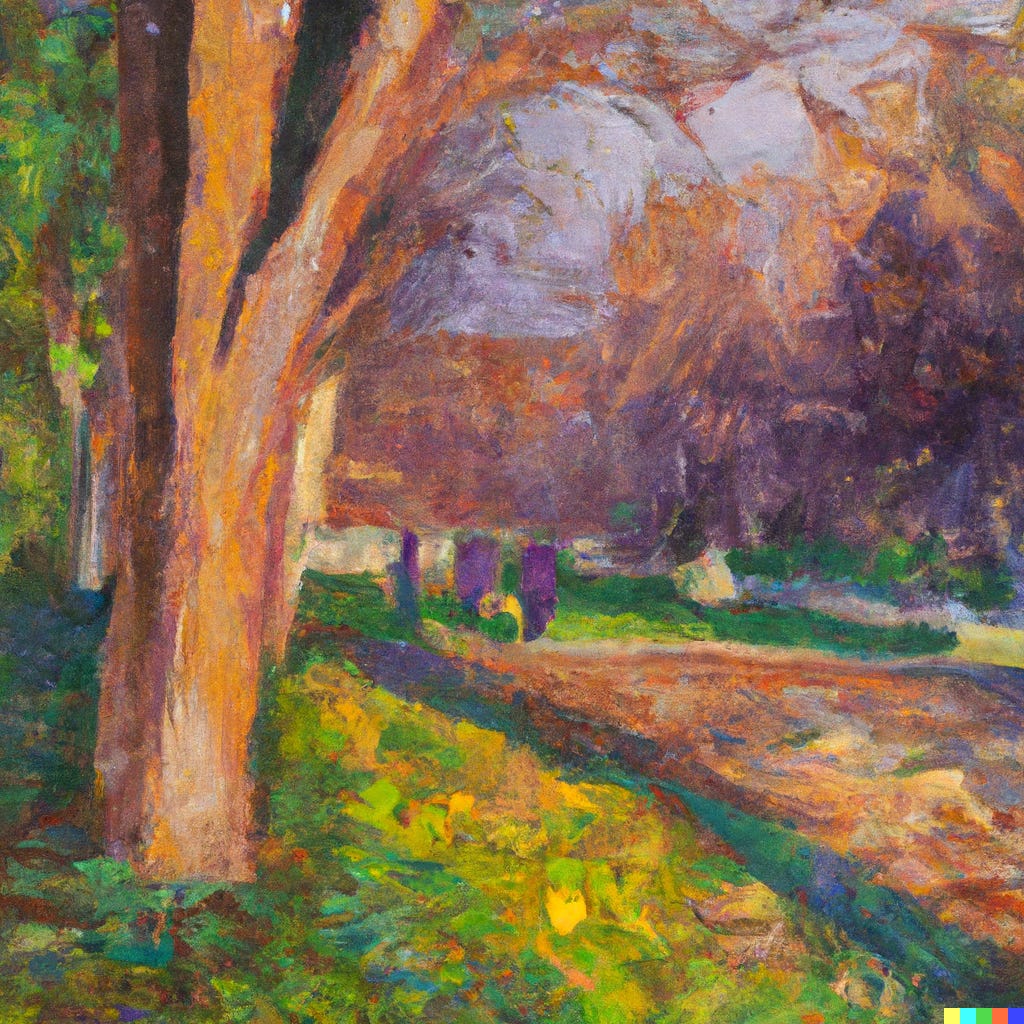Miscellany #15 Transient nature of life, poems by Mirza Ghalib and Henry Wadsworth Longfellow
In the silence of the woods it felt like I could hear the passage of time, of life passing by - Haruki Murakami
From the Editor
This poem reflects on the poet's deep contemplation of life's fundamental questions and the universal quest for meaning. The poet finds solace and resonance in the works of Ghalib and Larkin, recognizing that humanity has always pondered similar inquiries. The poem delves into the timeless inquiry about the purpose of our existence and the ultimate destination of our journey. It acknowledges the mysterious and intricate nature of the cycle of life, with its secrets and chances yet to be unraveled.
This poem is the essence of my existence,
Seeking answers throughout my persistence.
In the verses of Ghalib and Larkin, I find
Similar questions pondered in humankind.
Since the dawn of time, we've yearned to know,
Why are we here, where does our journey go?
The cycle of birth, its enigmatic dance,
What secrets does it hold, what's our chance?
You and I, intertwined in this cosmic play,
Metamorphosis, change, the eternal way.
Love's attachments, from mother to friend,
Their depth and power sometimes apprehend.
Being a poet, cursed with knowing,
The burden of awareness, forever growing.
Simplicity, I strive to attain,
To share these truths, to ease the strain.
Na tha kuchh to KHuda tha kuchh na hota to KHuda hota by Mirza Ghalib
Source: Rekhta.org
The poem, written by the renowned poet Mirza Ghalib, explores profound philosophical and existential themes. The poet contemplates the existence and nature of God, reflecting on the idea that God exists regardless of whether anything else exists or not. The first line, "na thā kuchh to ḳhudā thā kuchh na hotā," can be translated as "If there was nothing, then God was; if there had been nothing, then God would have been."
na thā kuchh to ḳhudā thā kuchh na hotā to ḳhudā hotā
Duboyā mujh ko hone ne na hotā maiñ to kyā hotā
huā jab ġham se yuuñ be-his to ġham kyā sar ke kaTne kā
na hotā gar judā tan se to zaanū par dharā hotā
huī muddat ki 'ġhālib' mar gayā par yaad aatā hai
vo har ik baat par kahnā ki yuuñ hotā to kyā hotā
The Tide Rises, the Tide Falls by Henry Wadsworth Longfellow
Source: Poetryfoundation.org
The Tide Rises, the Tide Falls" by Henry Wadsworth Longfellow is a short poem that explores the cyclical nature of life and the inevitability of death. Through vivid imagery of the rising and falling tide, the poem reflects on the passage of time and the transient nature of human existence.
The tide rises, the tide falls,
The twilight darkens, the curlew calls;
Along the sea-sands damp and brown
The traveller hastens toward the town,
And the tide rises, the tide falls.
Darkness settles on roofs and walls,
But the sea, the sea in the darkness calls;
The little waves, with their soft, white hands,
Efface the footprints in the sands,
And the tide rises, the tide falls.
The morning breaks; the steeds in their stalls
Stamp and neigh, as the hostler calls;
The day returns, but nevermore
Returns the traveller to the shore,
And the tide rises, the tide falls.


